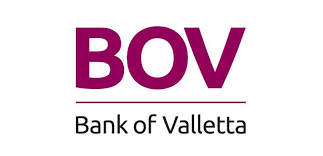Tourism
The Chamber acknowledges the fact that the Tourism sector is a very important sector that contributes to the Gozitan Economy. So the chamber strives to :
- Promote Gozo as a distinct tourism destination reflecting the island’s regional dimension;
- Promote Gozo as an all year round tourism destination;
- Enabling the tourism Industry to be a central economic activity, taking advantage of the various indigenous comparative strengths across the different seasons;
- Promoting industry inter-linkages between the tourism industry and other traditional and emerging industries, thus promoting higher value-added and indirect export services;
- The development of the tourism product in collaboration with the Ministry for Gozo – namely the Projects & Development Directorate and Eco-Gozo Regional Development Directorate;
- The promotion and enabling of investment and employment opportunities in Gozo in collaboration with the Malta Enterprise and the Employment and Training Corporation.
Importing/Wholesaling/Retailing
The import, wholesale and retail sector continued to evolve with the help of the digital evolution which changed the traditional ordering to a quick and just in time purchasing, making the whole sale sector less risky in terms of changes in the market. The retail sector has to face the competitive online purchasing. Such competition helped to better serve the ever demanding consumer.
Agriculture/Fishing
Agriculture on the island of Gozo remains an important economic activity, not only because it is a direct source of employment, but also because it makes available genuine agricultural products that are provided to the local market for fresh consumption as well as processing, resulting in the generation of more indirect employment on Gozo.
The agriculture and fishing sector in Gozo is relatively much larger than that of the Maltese Islands as a whole. As a result, around 30 percent of farmers and fishermen in the islands are Gozitan (Camilleri, 1992), even though the population of Gozo amounts to around 8 percent of the Maltese population. Agriculture and fishing production are associated with certain cultural attitudes.
Crafts
From the earliest times, Gozitans have had to be a self sufficient people, dependent on their own skills as farmers and craftspeople to survive. Until recently, each village and town would have had their own artisans, who could make and repair everything needed for daily life, from shoes to beautifully carved gable ends in the golden local limestone, or from woven textiles to very fine lace. In the 1960s, with migration, and the easier access to mass produced goods, it looked as if the traditional skills, the arts and crafts on Gozo, would disappear forever. However, when it was realised that the artistic heritage of the island was of such unique richness and importance, small craft centres were created which enabled older craftspeople to pass on their skills to the young.
Services
There are different financial sectors which can be attracted to operate from Gozo, such as intra-group financing activities, holding companies, overseas immovable property accounts, portfolio management, call centres, back-office operations, fund administration, and other investment services. The Chamber strives towards raising Gozo’s profile as a niche finance centre.
Manufacturing
Today, this sector has moved far beyond its roots to focus upon high value added operations requiring a skilled workforce. Indeed, local operations are cited for the high quality of their product as well as their flexibility and ability to adapt to clients’ needs. This has ensured that Malta and Gozo remain a competitive player in the sector. The sector itself is further diversified with operations involved in the production of automotive components, medical devices, pharmaceuticals, electronic components and high quality injection moulding, many with a high research and development component.
Construction/Real Estate
Malta and Gozo’s construction industry is reinventing itself with a focus on heritage-led regeneration projects as the renewal of villages and city-centres is gathering pace. Construction firms and urban planners increasingly integrate historic buildings and areas within regeneration schemes to create popular successful environments in which people enjoy working and living. The island struggles with aging buildings and urban decay, with some communities in dire need of renewal and environmental improvement. Rapid economic expansion has also necessitated a programme to overcome the islands capacity limitations and is channelling investment in infrastructure construction.

























